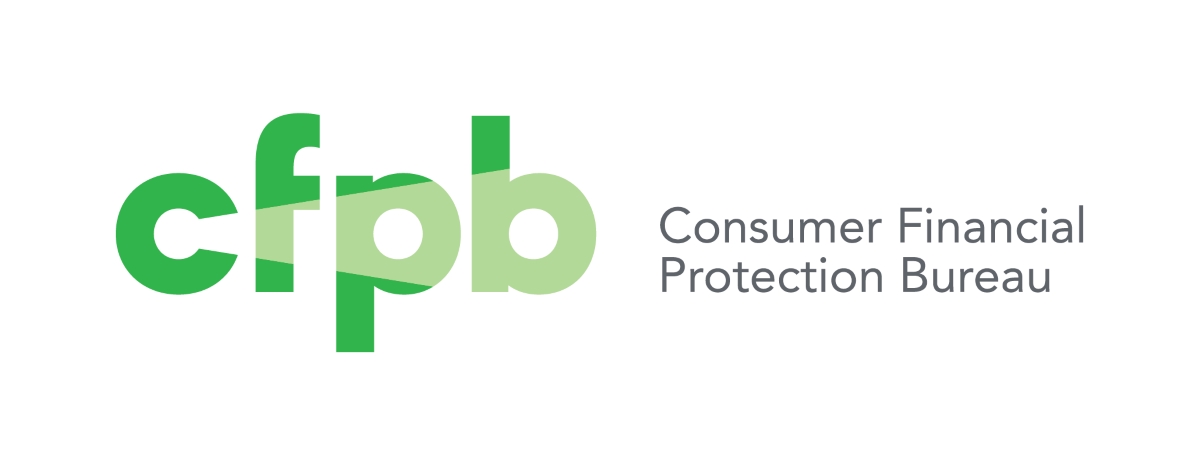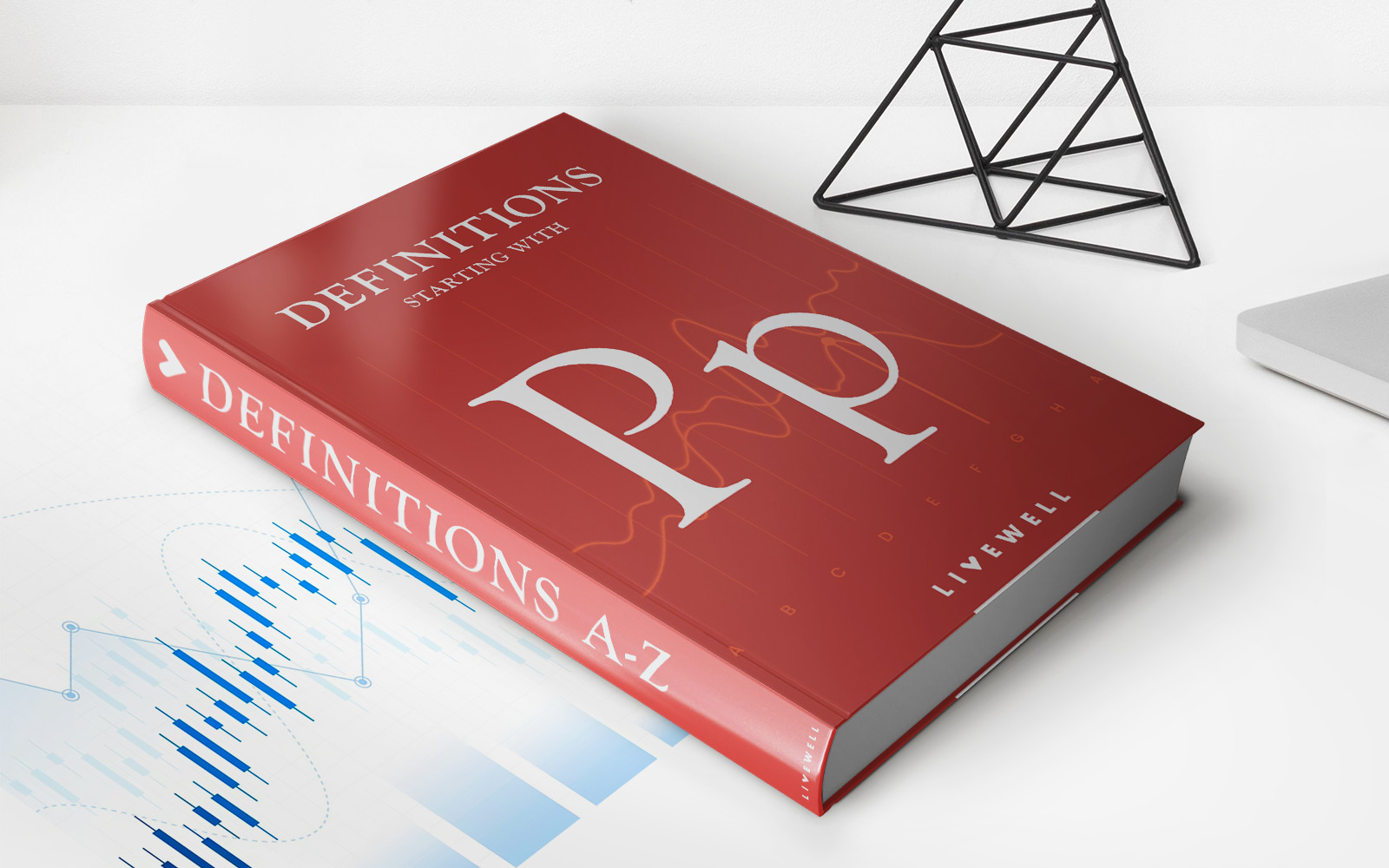Home>Finance>How Is The Consumer Financial Protection Bureau Used When Buying A Home?


Finance
How Is The Consumer Financial Protection Bureau Used When Buying A Home?
Modified: December 30, 2023
Learn how the Consumer Financial Protection Bureau plays a vital role in the finance industry when it comes to buying a home. Explore the impact and benefits it offers.
(Many of the links in this article redirect to a specific reviewed product. Your purchase of these products through affiliate links helps to generate commission for LiveWell, at no extra cost. Learn more)
Table of Contents
Introduction
Welcome to the world of home buying, where excitement and anticipation are often accompanied by complex processes and financial decisions. The journey of purchasing a home can be overwhelming, especially when it comes to understanding the various regulations and protections in place to safeguard buyers.
One important entity that plays a significant role in protecting consumers in the realm of finance is the Consumer Financial Protection Bureau (CFPB). Established in 2010 under the Dodd-Frank Wall Street Reform and Consumer Protection Act, the CFPB is a federal agency dedicated to ensuring that consumers have the necessary information and resources to make informed financial decisions.
In the context of home buying, the CFPB serves as a vital resource for potential buyers. It provides access to valuable information, tools, and regulations that help navigate the often-complex landscape of real estate transactions. By understanding the role of the CFPB and utilizing its resources, home buyers can feel more empowered and confident throughout the entire process.
In this article, we will explore how the CFPB is used when buying a home and how it can be instrumental in protecting buyers’ interests. From its role in providing information and resources to its enforcement of regulations and collaboration with other agencies, the CFPB plays a crucial role in ensuring a fair and transparent home buying experience.
So, if you’re ready to embark on a journey to homeownership, let’s dive into the realm of the CFPB and discover how it can assist and protect you as you navigate the exciting process of buying a home.
Understanding the Consumer Financial Protection Bureau (CFPB)
Before we delve into the specific role of the Consumer Financial Protection Bureau (CFPB) in the home buying process, let’s first gain a deeper understanding of what this agency is all about. The CFPB is a federal agency established in 2010 as part of the Dodd-Frank Wall Street Reform and Consumer Protection Act. Its primary mission is to protect and educate consumers in the financial marketplace.
The CFPB is responsible for enforcing federal consumer financial laws and ensuring that consumers have the necessary information to make informed decisions when it comes to their finances. It covers a wide range of financial products and services, including mortgages, credit cards, loans, and more. By regulating and supervising financial institutions, the CFPB strives to promote fairness, transparency, and accountability in the marketplace.
When it comes to home buying, the CFPB aims to ensure that consumers have access to fair and transparent mortgage lending practices. It provides resources, guidelines, and regulations to protect buyers from predatory lending practices, discrimination, and other potential pitfalls that can arise during the home buying process.
Under the umbrella of the CFPB, the Office of Financial Education plays a crucial role in providing consumers with the necessary tools and information to make informed financial decisions. Through educational materials, workshops, and online resources, the CFPB empowers home buyers to understand the various aspects of the home buying process, from mortgage options to closing costs and everything in between.
Overall, the CFPB serves as a watchdog and advocate for consumers in the financial marketplace. It is dedicated to leveling the playing field and ensuring that buyers are well-informed and protected when making one of the most significant financial decisions of their lives.
Now that we have a clearer understanding of the CFPB, let’s explore how this agency actively supports and protects home buyers throughout their journey.
Role of the CFPB in Protecting Home Buyers
When it comes to the home buying process, the Consumer Financial Protection Bureau (CFPB) plays a crucial role in protecting the interests of consumers. Let’s explore the various ways in which the CFPB safeguards home buyers.
1. Promoting Fair and Transparent Lending Practices: The CFPB enforces regulations that ensure mortgage lenders operate with transparency and fairness. It sets clear guidelines to prevent discriminatory lending practices, such as charging higher interest rates or denying loans based on factors like race, gender, or age. By promoting fair lending practices, the CFPB helps prevent financial hardships and ensures equal opportunities for all home buyers.
2. Mandating Mortgage Disclosures: One of the primary responsibilities of the CFPB is to ensure that home buyers receive accurate and understandable information about their mortgage loans. Through the implementation of the Know Before You Owe rule, also known as the TILA-RESPA Integrated Disclosure (TRID) rule, the CFPB mandates that lenders provide clear and comprehensive loan disclosures. These disclosures help home buyers fully understand the terms, costs, and risks associated with their mortgage, empowering them to make informed decisions.
3. Regulating Loan Servicing Practices: The CFPB also monitors and regulates loan servicing practices to protect homeowners from unfair treatment by mortgage servicers. These regulations establish standards for how loan servicers handle payments, maintain escrow accounts, and address borrower inquiries and disputes. By holding loan servicers accountable, the CFPB helps ensure that home buyers are treated fairly throughout the life of their mortgage.
4. Providing Educational Resources: The CFPB offers a wealth of educational resources to empower home buyers. Its website provides guides, tools, and interactive materials to help consumers understand the mortgage process, calculate loan costs, compare loan options, and more. These resources equip home buyers with the knowledge necessary to make informed decisions and navigate the complexities of the home buying journey.
5. Preventing Predatory Practices: The CFPB actively works to combat predatory lending practices that target vulnerable home buyers. Through enforcement actions and collaboration with law enforcement agencies, the CFPB strives to protect consumers from deceptive practices, fraud, and scams in the mortgage industry. By cracking down on predatory lenders, the CFPB fosters a safer and more trustworthy home buying environment.
In summary, the CFPB serves as a guardian for home buyers, ensuring that they are treated fairly, provided with accurate information, and protected from unfair practices in the mortgage industry. By regulating lenders, promoting transparency, and offering educational resources, the CFPB empowers consumers to make informed decisions, ultimately creating a more equitable and secure home buying experience.
Accessing Resources and Tools Provided by the CFPB
When it comes to navigating the complex world of home buying, the Consumer Financial Protection Bureau (CFPB) offers a wide range of resources and tools to empower and educate consumers. Let’s explore how home buyers can access these valuable resources.
1. CFPB Website: The CFPB maintains a comprehensive website that serves as a central hub of information for home buyers. It provides access to guides, worksheets, glossaries, and interactive tools that help demystify the home buying process. The website is user-friendly and offers step-by-step explanations, making it easy for buyers to understand complex concepts.
2. Mortgage Calculator: The CFPB offers an online mortgage calculator that allows home buyers to estimate their monthly payments, compare loan terms, and explore different mortgage options. By inputting information such as loan amount, interest rate, and term, buyers can get a clear picture of what their monthly expenses would be under various scenarios, helping them make informed decisions regarding their budget and affordability.
3. Home Loan Toolkit: The CFPB has developed a Home Loan Toolkit, a guide designed to help consumers understand the mortgage process and make informed choices. It covers topics such as obtaining a mortgage, choosing the right loan, understanding closing costs, and avoiding common pitfalls. The toolkit provides practical tips, checklists, and worksheets that buyers can use throughout their home buying journey.
4. Consumer Hotline: The CFPB operates a consumer hotline where home buyers can seek guidance, ask questions, and receive assistance regarding their mortgage-related concerns. Trained professionals are available to provide support and help buyers understand their rights and options. The hotline serves as a valuable resource for those who need personalized advice or have specific inquiries.
5. Housing Counseling Agencies: The CFPB collaborates with housing counseling agencies across the country to provide free or low-cost counseling services to home buyers. These agencies offer personalized guidance and can help buyers navigate the complexities of the home buying process. The CFPB website provides a directory of approved counseling agencies that buyers can reach out to for assistance.
6. CFPB Publications and Guides: The CFPB publishes a variety of guides and publications that cover a wide range of topics related to home buying. These resources provide in-depth information on subjects like mortgage shopping, understanding loan estimates, and avoiding scams. Buyers can access these publications on the CFPB website or request physical copies to be mailed to them.
By accessing these valuable resources and tools provided by the CFPB, home buyers can arm themselves with knowledge and make more informed decisions throughout the home buying process. Whether it’s using the mortgage calculator to assess affordability or utilizing the Home Loan Toolkit for step-by-step guidance, the CFPB equips buyers with the necessary tools to navigate the often complex and overwhelming journey of purchasing a home.
Consumer Complaints and Resolutions
When it comes to the Consumer Financial Protection Bureau (CFPB), its mission extends beyond providing resources and education to home buyers. The CFPB also serves as a platform for consumers to voice their concerns and seek resolutions to any issues they may encounter during the home buying process.
Submitting a Complaint: The CFPB provides an avenue for consumers to submit complaints about financial products or services, including mortgages. Through their website or by phone, home buyers can file a complaint, detailing the problem they have encountered. This could range from issues with lenders or loan servicers, to problems with mortgage disclosures or unfair treatment during the application process.
Complaint Investigation: Once a complaint is submitted, the CFPB reviews the details and initiates an investigation. They will contact the party against whom the complaint has been filed and gather relevant information and documentation. The CFPB’s goal is to resolve the complaint in a fair and timely manner.
Resolution and Assistance: The CFPB acts as an intermediary between consumers and financial institutions, working to reach a resolution that satisfies both parties. If a lender or servicer is found to be in violation of consumer protection laws or regulations, the CFPB has the authority to take appropriate enforcement actions, including civil lawsuits and financial penalties.
Tracking Complaints: The CFPB maintains a database of consumer complaints, accessible to the public. This allows other potential home buyers to research lenders, servicers, and other entities involved in the home buying process. The transparency provided by the complaint database encourages financial institutions to maintain fair practices and work towards resolving consumer issues in a satisfactory manner.
Consumer Advice and Assistance: In addition to resolving individual complaints, the CFPB provides general advice and assistance to consumers. They offer guidance on navigating the complaint process, understanding consumer rights, and finding alternatives when issues arise. Through their various resources and publications, the CFPB empowers home buyers to make informed decisions and advocate for their rights.
By providing a platform for consumers to submit complaints and seek resolutions, the CFPB holds financial institutions accountable and ensures that home buyers have a voice in the marketplace. This process not only helps resolve individual issues but also contributes to promoting fair and transparent practices within the mortgage industry.
It’s important for home buyers to be aware of their rights and to utilize the resources provided by the CFPB if they encounter any problems during the home buying process. By voicing their concerns and seeking resolution, consumers play an active role in fostering a more transparent and consumer-friendly marketplace.
CFPB Regulations and Enforcement
The Consumer Financial Protection Bureau (CFPB) is responsible for enforcing federal consumer financial laws and regulations to ensure a fair marketplace for consumers. Let’s explore the role of CFPB regulations and the enforcement actions that help protect home buyers.
Regulations for Mortgage Lenders: The CFPB has implemented several regulations specific to the mortgage industry to protect home buyers. These regulations include the Ability-to-Repay and Qualified Mortgage standards, which require lenders to assess a borrower’s ability to repay a mortgage and ensure that mortgage loans meet certain criteria to provide consumers with safer lending options. The Home Mortgage Disclosure Act (HMDA) also requires lenders to collect and report data on mortgage loans to ensure fair lending practices.
Mortgage Servicing Regulations: The CFPB has also established regulations that aim to protect home buyers during the loan servicing process. These regulations cover areas such as mortgage payment processing, escrow accounts, error resolution procedures, and communication between borrowers and servicers. By setting clear guidelines, the CFPB ensures that mortgage servicers treat borrowers fairly and transparently throughout the life of their loans.
Enforcement Actions: The CFPB has the authority to take enforcement actions against financial institutions that violate consumer protection laws. This can include misleading or deceptive practices, discrimination, or other violations. Enforcement actions may involve imposing financial penalties, requiring restitution to affected consumers, and implementing changes to business practices. By holding violators accountable, the CFPB works to deter unfair and predatory practices and protect the rights of home buyers.
Collaboration with State and Federal Agencies: The CFPB works closely with other state and federal agencies to ensure effective enforcement of consumer protection laws. It collaborates with state attorney generals, banking regulators, and other agencies to coordinate efforts, share information, and take joint enforcement actions when necessary. This collaborative approach strengthens the enforcement capabilities and ensures a consistent level of consumer protection across the country.
Consumer Education: Alongside regulations and enforcement, the CFPB places great importance on educating consumers about their rights and the protections in place. Through its website, publications, and outreach initiatives, the CFPB provides educational resources to help home buyers understand their rights and navigate the mortgage process. By increasing consumer awareness, the CFPB empowers individuals to make financial decisions with confidence and avoid potential pitfalls.
By implementing regulations and enforcing consumer protection laws, the CFPB plays a vital role in safeguarding home buyers. These measures ensure that financial institutions operate fairly, transparently, and responsibly, helping to maintain a level playing field and promoting a trustworthy and reliable mortgage market.
Home buyers can benefit from understanding the regulations set forth by the CFPB and being aware of their rights. By staying informed and utilizing the resources provided by the CFPB, consumers can make informed decisions and feel more secure throughout the home buying process.
Collaborations with Other Agencies and Organizations
The Consumer Financial Protection Bureau (CFPB) recognizes the importance of collaborative efforts in protecting consumers and ensuring a fair financial marketplace. The CFPB actively collaborates with other agencies and organizations to enhance consumer protection measures in the context of home buying. Let’s explore some of the key collaborations undertaken by the CFPB.
Collaboration with State and Federal Agencies: The CFPB works closely with other state and federal agencies involved in consumer protection and financial regulation. It shares information, coordinates enforcement actions, and promotes effective collaboration to address issues collectively. This collaboration helps streamline efforts, avoid duplicative actions, and ensure a consistent level of consumer protection across different jurisdictions.
Partnerships with Housing Counseling Agencies: The CFPB collaborates with housing counseling agencies throughout the country to provide free or low-cost counseling services to home buyers. By partnering with approved agencies, the CFPB helps ensure that consumers have access to reliable and trustworthy guidance throughout the home buying process. These counseling services offer personalized assistance, empower buyers to make informed decisions, and help navigate potential challenges.
Cooperation with Industry Associations and Trade Groups: The CFPB engages with industry associations and trade groups to foster dialogue, share insights, and seek input on proposed regulations and policies. By collaborating with stakeholders in the mortgage industry, the CFPB can better understand the challenges and perspectives of different players in the marketplace. This collaborative approach helps create more effective and balanced regulations that protect both consumers and industry interests.
Participation in Interagency Task Forces: The CFPB actively participates in interagency task forces and working groups focused on consumer protection and financial stability. These task forces bring together multiple agencies, such as the Federal Reserve, the Department of Housing and Urban Development (HUD), and the Federal Trade Commission (FTC), to address systemic issues and coordinate efforts. By working alongside other agencies, the CFPB strengthens its ability to address complex challenges and promote comprehensive protection for home buyers.
Collaboration on Financial Literacy Initiatives: The CFPB collaborates with various organizations and community groups to promote financial literacy and empower consumers through education. These collaborations involve developing educational materials, conducting workshops, and providing resources to enhance financial awareness and decision-making skills. By working together with partners, the CFPB expands its reach and ensures that consumers have access to valuable financial education resources.
Collaborations with other agencies and organizations allow the CFPB to leverage collective knowledge, resources, and expertise to maximize the impact of consumer protection efforts. By fostering cooperation, sharing information, and seeking diverse perspectives, the CFPB strengthens its ability to advocate for and protect the interests of home buyers in an increasingly complex financial landscape.
Home buyers can benefit from the CFPB’s collaborations by accessing a wide range of resources and expertise. By utilizing the educational materials, counseling services, and consumer protection initiatives resulting from these collaborations, individuals can navigate the home buying process with greater confidence and make informed decisions.
Conclusion
The Consumer Financial Protection Bureau (CFPB) plays a vital role in protecting and empowering home buyers throughout the process of purchasing a home. Through its regulations, tools, educational resources, and enforcement actions, the CFPB ensures that consumers have the necessary information and safeguards to make informed financial decisions with confidence.
By understanding the role of the CFPB and utilizing its resources, home buyers can navigate the complex world of real estate transactions with greater ease. The CFPB promotes fair lending practices, mandates transparent mortgage disclosures, and regulates loan servicing to protect buyers from predatory practices.
Accessing the resources and tools provided by the CFPB, such as their website, mortgage calculator, and Home Loan Toolkit, home buyers can gain valuable insights and guidance to make informed decisions at every step of the home buying process. The CFPB’s complaint handling process also provides a platform for consumers to seek resolutions and hold financial institutions accountable for any concerns or issues that may arise.
The CFPB actively collaborates with other agencies, housing counseling organizations, and industry stakeholders to promote consumer protection, enhance financial literacy initiatives, and ensure a fair and transparent marketplace for all. These collaborations amplify the CFPB’s impact and reach, ensuring that home buyers have access to a wide network of support and resources.
In conclusion, the Consumer Financial Protection Bureau serves as a guardian, advocate, and educator for home buyers. Its commitment to transparency, fairness, and consumer empowerment creates an environment where buyers can confidently pursue their dream of homeownership. By leveraging the resources provided by the CFPB and engaging with its initiatives, home buyers can navigate the home buying process with greater knowledge, awareness, and protection.














